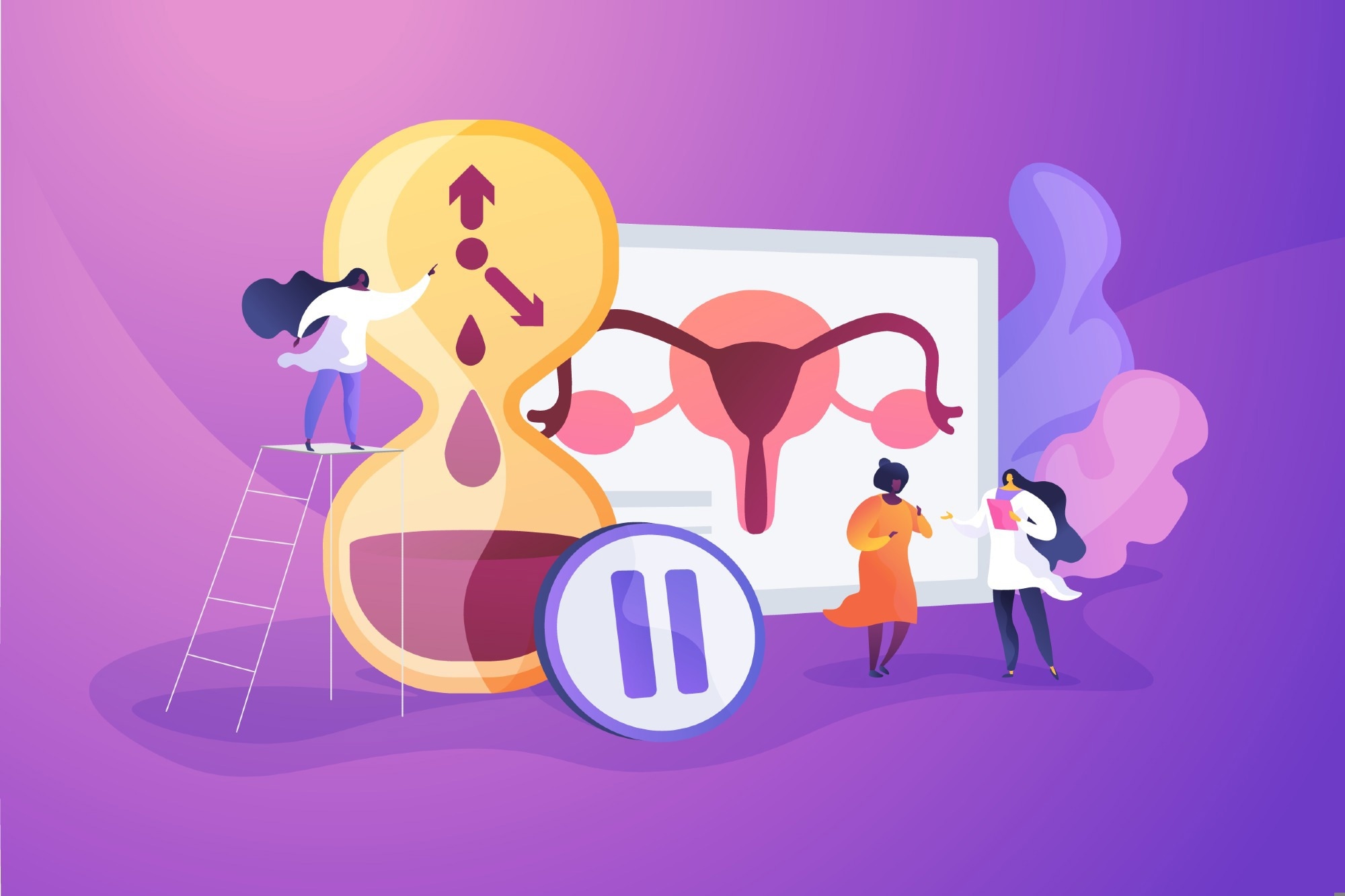Historical movements that shaped women's health
Key determinants of women's health
Strategies to improve women's health
References
Further reading
Women's health includes issues unique to women, such as menstruation and pregnancy, as well as those that affect both genders. Certain conditions, such as diabetes, affect women differently than men. Women's health must be prioritized because it determines the well-being of our modern world.

Image Credit: GoodStudio/Shutterstock.com
Historical movements that shaped women's health
In the early 1900s, the Women's Health Movement (WHM) started with Margaret Sanger's fight for women's rights to birth control.1 Although in the 1960s abortion was illegal except to save the life of women, more than one million illegal abortions were performed annually.
Many women who underwent illegal abortions experienced various levels of medical complications, and some even required hospital care. Medical evidence also revealed that women died from complications that developed due to illegal abortion. During the 1960s and 1970s, women activists predominantly fought to gain control over their reproductive rights. Finally, in 1973, the Supreme Court's ruling in Roe vs. Wade legalized abortion in the US.1
In the 1970s, WHM triggered multiple changes in childbirth practices. For example, they advocated the choice of expectant parents, such as allowing husbands to be present during birth.2 Two childbirth organizations, namely, the International Childbirth Educational Association and Lamaze International, were formed and headed by women. The organizations aim to prepare expectant parents for birth by providing proper healthcare information.2
Read More About The History of Women In Medicine
Key determinants of women's health
The health of women and girls is of particular concern because of multiple societal discriminations.3 Different psychological, physical, social, environmental, and economic factors may influence overall health and well-being. Lack of access to healthcare facilities, gender-based violence and discrimination, illiteracy, and poor nutrition significantly affect women's health.4
Studies have shown that women in low-income countries are more likely to be deprived of necessities like food, water, and healthcare. In contrast, women from developing countries are more likely to experience gender-based violence, which may significantly affect their health.5
Some of the key components that affect women's health are discussed below:
- Societal discrimination: Several forms of societal discrimination, such as an exclusive focus on women's reproductive roles, unequal power between men and women, social norms that decrease paid employment opportunities, and increased exposure to physical, sexual, and emotional violence, negatively affect women's health. Globally, it has been estimated that one in three women experience physical or sexual violence in their lifetime. This can have a significant effect on their mental and physical health. It has been documented that women living in war-affected regions are at a higher risk of rape and other forms of violence.6
- Economic: While poverty is an important barrier to positive health for both men and women, it induces a higher burden on women's health. For example, in low-income households, typically, women are more likely to cook meals, and the use of unsafe cooking fuels increases their risk of developing chronic obstructive pulmonary disease (COPD), emphysema, and asthmatic bronchitis.7 Poverty also drives malnutrition, which can seriously affect women's health. Lack of nutritious food and clean water can lead to a variety of health issues, such as anemia and a weakened immune system.
- Healthcare: Access to quality healthcare facilities is essential for women's health and well-being. Many women living in low- and middle-income countries lack access to basic services, such as maternity care, HIV/AIDS prevention and treatment, and family planning. The lack of proper healthcare access contributes to higher maternal mortality and morbidity rates. The lack of access to safe abortion services and comprehensive sex education increases the number of unsafe abortions.8
- Education: Women with higher levels of education are more likely to have better access to quality healthcare and less likely to experience gender-based violence. However, in many countries across the world education opportunities are not available to all women, which contributes to poor health outcomes.
- Chronic diseases: In comparison to men, women are more likely to have other co-existing chronic conditions that may mask symptoms of heart diseases. This increases the risk of misdiagnosis of diseases in women. Women are also found to be at a higher risk of lung cancer, which could be linked to increased cigarette smoking in women.
- Mental health: Women are at a higher risk of developing depression and dysthymia than men. Undertreated mental disorders have poor health outcomes; it can also be fatal as depression increases suicide tendencies.

Image Credit: Net Vector/Shutterstock.com
Strategies to improve women's health
It is not easy to rapidly improve women's health and well-being worldwide. This complex task requires collective effort from different stakeholders, including civil society, government, private sector, and individual women, to develop a holistic approach considering all components that contribute to poor health outcomes.
Currently, many research organizations and global and public health agencies focus on maternal and neonatal care through nutrition, education, and care. These organizations also focus on the cause, treatment, and prevention of a broad spectrum of diseases, such as heart disease, mental and addictive disorders, breast and ovarian cancers, osteoporosis, gynecologic disorders, autoimmune disorders, and AIDS, which affect women across the lifespan.
The International Council on Women's Health Issues (ICOWHI) is an international non-profit association that promotes healthcare and the well-being of women and girls worldwide through empowerment, education, advocacy, and research.
Gynecological health is an important component of women's health not only during their reproductive years but throughout their lives.9 Many older women mistakenly believe that they do not require gynecological exams after reaching menopause. However, older women are at a higher risk of developing cancer in the reproductive system and uterine prolapse. A regular gynecological check-up will reduce the risks of unwanted health outcomes.
A significant body of research has indicated that timely and adequate prenatal care considerably increases the chance of positive pregnancy outcomes. Maternal mortality risks increase due to heart ailments, high blood pressure, hemorrhage, embolism, domestic violence, and infection.
Younger women are biologically more susceptible to developing sexually transmitted diseases (STDs) than men counterparts, particularly due to differences in their cervical anatomy. Notably, the increased use of contraceptives has significantly decreased the rates of unwanted or unplanned pregnancies and STDs in younger women.10
References
- Nichols FH. History of the Women's Health Movement in the 20th century. J Obstet Gynecol Neonatal Nurs. 2000;29(1):56-64. doi: 10.1111/j.1552-6909.2000.tb02756.x.
- Lamaze International: P P-L f t 21 C. J Perinat Educ. 2002 Winter;11(1):x-xii. doi: 10.1624/105812402X88542.
- Khan N. Breaking the Bias in Women's Health. Br J Gen Pract. 2022;72(717):147. doi: 10.3399/bjgp22X718817.
- Davidson PM, et al. The health of women and girls determines the health and well-being of our modern world: A white paper from the International Council on Women's Health Issues. Health Care Women Int. 2011 Oct;32(10):870-86. doi: 10.1080/07399332.2011.603872.
- Ralli M. et al. Health and Social Inequalities in Women Living in Disadvantaged Conditions: A Focus on Gynecologic and Obstetric Health and Intimate Partner Violence. Health Equity. 2021;5(1):408-413. doi: 10.1089/heq.2020.0133.
- Tewabe DS. et al. Gender-based violence in the context of armed conflict in Northern Ethiopia. Confl Health. 2024;18(1):1. doi: 10.1186/s13031-023-00563-4.
- Chen HC. et al. Exposure to cooking oil fumes and chronic bronchitis in nonsmoking women aged 40 years and over: a healthcare based study. BMC Public Health. 2018;18(1):246. doi: 10.1186/s12889-018-5146-x.
- Rivera Rodriguez G. et al. The Medical and Financial Burden of Illegal Abortion. Cureus. 2022;14(10):e30514. doi: 10.7759/cureus.30514.
- Krause L, Dini L, Prütz F. Reasons for women aged 50 years and older to seek gynaecological advice and treatment. J Health Monit. 2020;5(2):3-14. doi: 10.25646/6065.
- Chandra-Mouli V, Akwara E. Improving access to and use of contraception by adolescents: What progress has been made, what lessons have been learnt, and what are the implications for action? Best Pract Res Clin Obstet Gynaecol. 2020;66:107-118. doi: 10.1016/j.bpobgyn.2020.04.003.
Further Reading
Last Updated: Aug 15, 2024